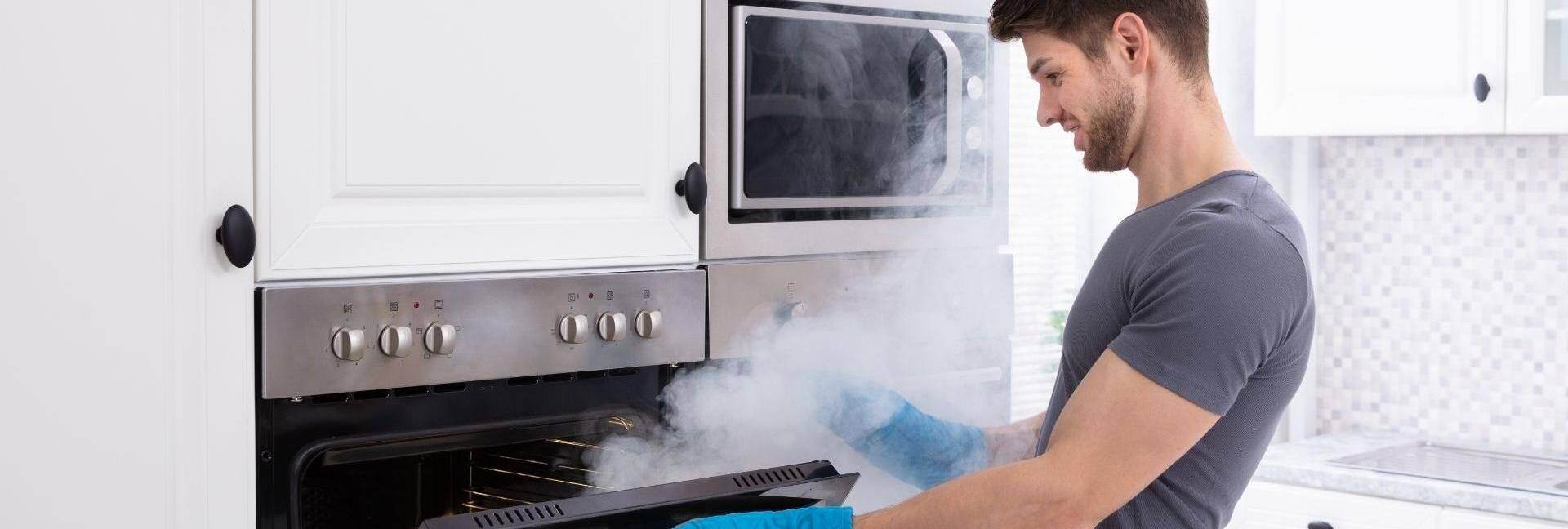Smart homeownership with Cinch Home Services
Tips and tricks for your house, your home and you. Your one-stop resource for maintaining and improving your home. From DIY tutorials and cleaning hacks to finding trusted professionals for major renovations, we've got you covered.


Ooops!
We encountered an issue retrieving plan details for your area. Please return to the previous page and try again.
All the tips you need classified by categories

Appliances, Home Repairs and Maintenance
Guide to common oven repairs
Oven won’t turn on? Learn how to troubleshoot the most common oven and stove problems with our handy guide.
Nov 18, 2025

Appliances, Home Repairs and Maintenance
Why does my oven smoke? Causes & solutions
If the meatloaf isn’t burning, then why is my oven smoking? Here are the top reasons for a smoking oven and ways to prevent your dinner from going up in smoke.
Nov 18, 2025

Appliances, Home Repairs and Maintenance
Complete the furnace maintenance checklist before temperatures drop
Winter is coming, so don’t delay completing this furnace maintenance checklist before you crank up the heat.
Nov 18, 2025

Appliances, Home Warranty, Appliance Issues
Home warranty vs. Appliance warranty: know the difference and choose the right one
If you're deciding between warranties, read on to learn the difference between purchasing broader home warranty coverage and more narrow appliance coverage.
Oct 6, 2025

Dryer, Dryers
How long do dryers last? Here are some tips on extending its lifespan
Extend your dryer’s lifespan with expert care tips. Learn how to troubleshoot common issues and keep laundry running smoothly at home.
Sep 12, 2025

Home Repairs and Maintenance
The easiest way to fix a leaky hose bib
Learn how to identify and fix a leaky hose bib in your home.
Jun 3, 2025

Home Repairs and Maintenance
What is a plumbing stack and why is it important to your home?
Tired of slow drainage? Your plumbing stack may be the problem. Read on to learn more about what a plumbing stack is and why it’s important to your home.
Jun 3, 2025

Home Warranty
Is a Home Warranty Worth It? Here’s What the Numbers Tell Us
Wondering whether buying a home warranty plan is worth it? We did the math for you so you don’t have to.
Jun 3, 2025

Home Repairs and Maintenance
What Does a Gas Leak Smell Like? (Different Gases Explained)
Prepare yourself in the event of a gas leak by knowing how types of gas leaks smell. Learn more from Cinch Home Services.
Jun 3, 2025

Home Repairs and Maintenance
How to remove air from your home water lines
This step-by-step guide will help you identify and remove air from your water lines and save your plumbing system from damage.
Jun 3, 2025
Displaying 1 - 10 of 200 results
Ready for a home warranty?
It feels good to be prepared. Find the plan that's right for your home and budget